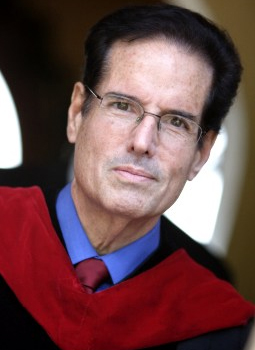Is the Sabbath for Today? -- Part 5
By: Dr. Robert A. Morey
What about those who argue that the “Sabbath was made for man”? Was the Sabbath established as a moral law for all men? Was it established as a moral law only for the nation of Israel? Dr. Morey examines this argument.
Part II—An Examination Of The Sabbatarian Arguments
The "Sabbath Made for Man" Argument
The Sabbatarian Position:
Christ clearly taught that the Sabbath was a moral law in Mark 2:27 on two grounds:
-
The Sabbath was made for man, i.e., it is a moral law.
-
It was made for man, i.e., not for Jews only but mankind considered as a whole.
Examination of this Argument:
- An examination of the context (vs. 23-28) reveals that instead of seeking to establish the Sabbath as a moral law, Christ clearly equates it to the ceremonial law concerning the shewbread. The Pharisees made too much of the Sabbath and Christ now instructs them as to a proper view of the ceremonial nature of the Sabbath. Christ and His disciples could “break” the Sabbath just as David and his men could “break” the law about shewbread because both were ceremonial laws.
- Christ’s statement, “the Sabbath was made for man and not man for the Sabbath,” plainly reveals the ceremonial nature of the Sabbath. Ceremonial laws are “made for man,” i.e., for man’s assistance, help, ignorance, etc. Thus Christ was teaching that just as the law regarding shewbread was “made for man” and could not be used against the health and welfare of people, so the Sabbath law was also “made for man.” That is, it is no more a moral law than the law for shewbread. It is clear that the Pharisees had twisted the Sabbath all out of proportion and Jesus here puts it in proper perspective.
- As to the argument that since Christ said “for man,” instead of “for Israel,” that this means “all mankind who ever lived or will live in all ages and places,” we make the following observations:
- An examination of the usage of the Greek word translated “man” reveals that it rarely means “all mankind.” In fact, in many places, such as I Timothy 2:1, it is impossible to understand it as “all mankind.”
- Most Sunday Sabbatarians are strict Calvinists who go to great lengths, when discussing the atonement, to prove that this Greek word does not mean “all mankind.” They rightly point this out in such places as Romans 5:18, I Timothy 2:4, Titus 2:11, etc.
It seems quite strange to us that the very same theologians who dogmatically state that “man” in Mark 2:27 must mean “all mankind,” are equally strong in other passages as cited above that the word cannot mean “all mankind”!
|
|






































